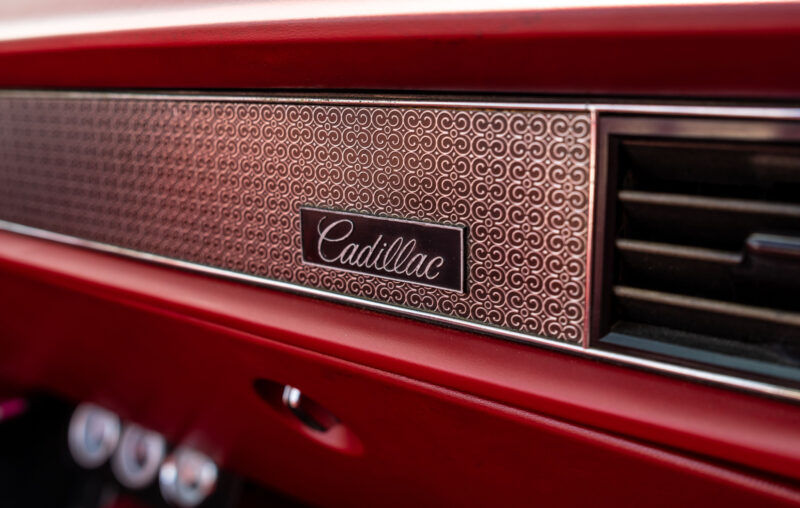[ad_1]

Oliver Anthony’s blue-collar anthem “Wealthy Males North of Richmond” is the most-talked-about music in America.
Since debuting on August 7, the music has racked up 45 million views on YouTube (at time of writing), and sits atop the Billboard Scorching 100. Whereas tens of thousands and thousands of listeners clearly love the Virginia native’s hit, it has additionally taken flak for its financial populism.
The music takes purpose at every little thing from inflation (“the greenback ain’t sh*t”) to excessive taxes and low wages. But it surely’s the music’s assault on welfare that has actually riled individuals up.
Lord, we received of us on the street, ain’t received nothin’ to eat
And the overweight milkin’ welfare
Nicely, God, if you happen to’re 5-foot-3 and also you’re 300 kilos
Taxes ought to not pay in your luggage of fudge rounds
These phrases didn’t sit properly with many, notably these within the media.
“As an alternative of trafficking in simple caricatures and political tropes, we should perceive that the plight of our food-insecure neighbors is our plight as properly,” mentioned Hannah Anderson in Christianity Immediately, who shared her personal story about being on welfare.
“Anthony actually does punch down on the poor,” Kenan Malik wrote in The Guardian.
For a lot of journalists, criticizing welfare is a 3rd rail. Welfare helps poor individuals, due to this fact good individuals assist welfare.
There are issues with this logic, and Anthony shouldn’t be the primary nation music songwriter to poke on the sacred cow of welfare.
When ‘Welfare Cadillac’ Soared to #1
In 1970, a working-class man named Man Drake penned a music named “Welfare Cadillac” that grew to become a success in North America, reaching sixth on US charts and #1 in Canada.
Drake, Slate just lately famous, took a non-traditional path to music stardom. Whereas working as a painter within the Sixties, he wrote a tongue-in-cheek tune a couple of poor household residing on welfare in a shabby dwelling whereas consuming excessive on the hog on authorities dole and driving a Cadillac. Drake described to a newspaper the inspiration for the music, which got here in the future whereas portray excessive up on a radio tower.
“I appeared down,” Drake informed a reporter, “and noticed this shanty that was half wooden and half Vacation Inn signal with a roof manufactured from sawmill slabs, tin cans, and items of linoleum. There was a litter of younguns, a few of ’em sufficiently old for college, with no sew of garments on. I didn’t see any grownups. What actually received me was this Cadillac parked in entrance of the home.”
Drake’s message poking at welfare was as controversial in 1970 as Anthony’s is right now. File labels refused to the touch the music, which prompted the 60-plus year-old Drake to launch his music as an unbiased single with $1,500 of his personal cash.
Regardless of its controversial material—or maybe due to it—the music shortly grew to become a success. But it surely additionally got here below fireplace.
Rolling Stone reportedly referred to as Drake’s music “disgustingly racist,” although there isn’t any allusion to race within the music. (The Atlantic made an analogous allegation in 2021 with out bothering to quote proof.) Authorities officers additionally attacked the music.
“Its message that welfare recipients are low-cost and the remainder of us are chumps is a grave disservice,” the Tennessee Welfare Commissioner wrote in a public letter to President Richard Nixon, who liked the music and unsuccessfully tried to get Johnny Money to cowl the hit throughout his 1970 White Home go to.
Drake, very similar to Anthony, dismissed criticisms that his music was a political screed that mocked welfare recipients.
“In the event that they ain’t on welfare and don’t drive a Cadillac,” Drake informed a reporter, “then I ain’t speaking about them.”
“I didn’t write this music to make anyone mad,” he added. “I simply needed individuals to giggle, as a result of I figured in the event that they had been laughing they wouldn’t be fascinated with their troubles.”
The Economics of Welfare
Like Drake, Oliver Anthony right now finds himself accused of racism for attacking welfare, although there may be not a single reference to race in his music.
“After all, within the US — and notably within the South — downward-looking class resentment is routinely interlaced with racial animus,” Eric Levitz writes in New York journal. “This raises questions on what exactly [Anthony] means by ‘individuals like me and other people such as you.’”
Levitz concludes that it’s affordable to ponder “whether or not a shade line divides those that deserve extra to eat from those that deserve much less, at the very least within the music’s account.”
That is tortuous logic, frankly. (Readers on the lookout for a much more nuanced assessment of Anthony’s music ought to learn the assessment of Jay Caspian Kang, Levitz’s New York journal colleague.) In fact, a fairer cost of racism might be leveled towards those that affiliate welfare with brown-skinned individuals.
Certainly, some of the putting options of Anthony’s music is that it appears to have resonated with Individuals of each racial background. A heart-moving video shared by Will Cain exhibits individuals responding to Anthony’s music. Essentially the most putting a part of the clip shouldn’t be the many individuals visibly moved to tears; it’s the various make-up of the individuals who get emotional whereas listening to “Wealthy Males North of Richmond.”
To assault Anthony’s music as racist or “punching down” is vicious and lazy, and it overlooks a actuality about welfare many proponents of the coverage refuse to see: Welfare, like all coverage, comes with financial tradeoffs.
There’s no query that welfare packages assist some individuals, corresponding to Hannah Anderson, who describes intimately how authorities help helped her household. However there are prices to the coverage, and these prices go far past the levies on taxpayers who pay for the packages.
Welfare additionally comes with perverse incentives. It may possibly discourage work—the true automobile for escaping poverty—and create what economists name poverty traps. This isn’t some libertarian or conservative fantasy. The left-leaning opinion author Catherine Rampell described a part of this phenomenon a number of years in the past within the Washington Submit:
…right now’s social security web discourages poor individuals from working, or at the very least from incomes more cash… you may qualify for some welfare packages, corresponding to meals stamps, housing vouchers, child-care subsidies and Medicaid. However if you happen to get a promotion, or longer hours, or a second job, or in any other case begin making extra, these advantages will begin to evaporate…
This is only one means right now’s welfare packages hurt individuals. And the reality is the federal authorities’s Battle on Poverty has been a colossal failure.
Information present that poverty within the US was plummeting earlier than Lyndon Johnson declared “struggle” on it, falling from 32.1 % to 14.7 % over a two-decade span. But since 1966, after ushered in his Nice Society, the US poverty fee has barely budged. (The poverty fee right now stands at 12.8 %.)
Why? The reply is maybe present in a quote attributed to Benjamin Franklin.
“I feel one of the best ways of doing good to the poor, shouldn’t be making them simple in poverty, however main or driving them out of it,” Franklin as soon as mentioned.
Franklin clearly understood perverse incentives higher than journalists right now.
Some nation musicians appear to grasp them a bit higher as properly, which is evidenced by Anthony’s traces following his quip about “luggage of fudge rounds.”
Younger males are puttin’ themselves six ft within the floor
‘Trigger all this rattling nation does is carry on kickin’ them down
It’s clear from these traces that Anthony shouldn’t be mocking anybody, however criticizing a program that has harmed thousands and thousands of Individuals by making them depending on authorities largesse.
Many Individuals assist welfare as a result of they imagine that’s what any compassionate individual would do. However the Nobel Prize-winning economist Milton Friedman reminded us that insurance policies should be judged by their outcomes, not their intentions.
In 1970, when Man Drake wrote “Welfare Cadillac,” one might argue that we hadn’t but given welfare an opportunity. Immediately, there isn’t any such excuse.
[ad_2]
Source link




